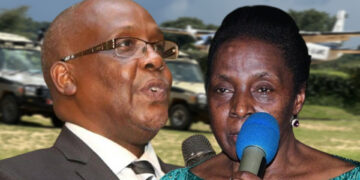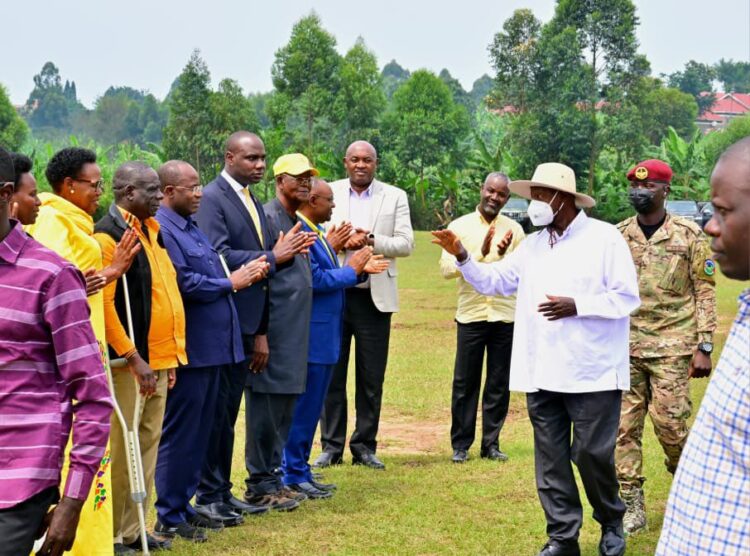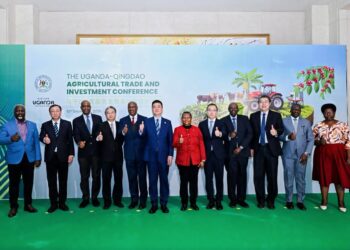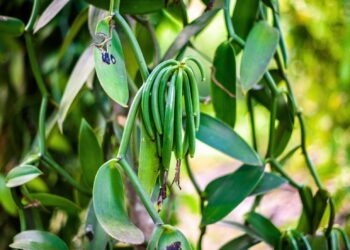By Leonard Kamugisha Akida,
BUSHENYI
The Ministry of Agriculture, Animal Industry and Fisheries (MAAIF) has revealed that it is drafting new regulations to streamline Uganda’s tea industry and improve competitiveness on the international market.
Agriculture Minister Frank Tumwebaze made the announcement on Tuesday during a meeting with tea farmers and processors from western Uganda, chaired by President Yoweri Museveni in Bushenyi District.
“We have already started drafting regulations to define how tea should be handled, including issues of genetics, because we have an entire institute under NARO dedicated to tea research. We must also control the genetics,” Tumwebaze said.
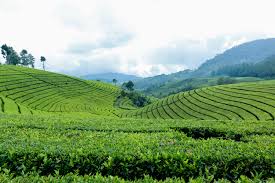 The move comes after repeated complaints from farmers and processors that Uganda’s tea has been losing market share due to the absence of a strong regulatory framework on quality. Tumwebaze noted that the rationalization of agencies back to ministries left the tea sector without an independent regulator, but assured stakeholders that new guidelines are being finalized for Cabinet approval.
The move comes after repeated complaints from farmers and processors that Uganda’s tea has been losing market share due to the absence of a strong regulatory framework on quality. Tumwebaze noted that the rationalization of agencies back to ministries left the tea sector without an independent regulator, but assured stakeholders that new guidelines are being finalized for Cabinet approval.
Under the proposed framework, district and sub-county production departments will take on regulatory powers, while the Ministry of Trade will oversee factory operations. Tumwebaze said the regulations are expected to be in place before the end of the year.
The farmers also appealed to the president to address poor roads, delayed payments, low tea prices, and rising costs, warning that smallholders risk poverty without urgent support.
Tea exporter and businessman Al-Hajji Hassan Basajjabalaba welcomed the government’s commitment but attributed declining tea sales to the Russia-Ukraine war, noting that the two countries had been among Uganda’s biggest tea markets. He urged the government to negotiate market access with countries such as Egypt, Pakistan, and China.
Basajjabalaba also raised concerns over unstable electricity supply following the transition from Umeme to Uganda Electricity Distribution Company Limited (UEDCL), as well as high power costs that he said undermine competitiveness.
“I used to spend UGX 100 million on electricity, but because of unreliable supply, I now spend over UGX 250 million on diesel,” he said, adding that Ugandan factories face higher energy costs compared to their Kenyan counterparts.

In response, President Museveni pledged government support to the sector through regulation, subsidies, and expanded market access. He announced that government would provide tax-free diesel and subsidized fertilizers to ease production costs.
“This is not bad economics at all. We are feeding people who generate money for the country,” Museveni said.
The President further committed Shs 152 billion to support factory owners, Shs 46 billion to boost tea growers, and nursery bed owners Shs300 billion. While districts will receive two billion shillings each for support and improved road infrastructure, respectively.
President Museveni also promised to engage leaders of China, Kenya, Egypt, and Pakistan to secure new export markets for Ugandan tea.
















